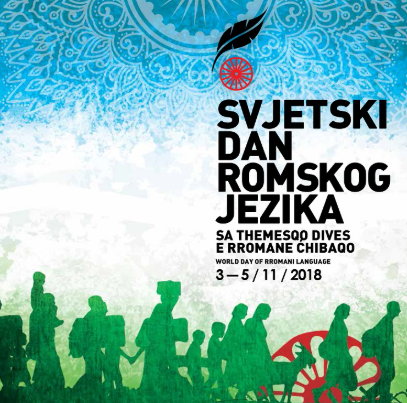Lifestyle
Activists Urge Inclusion of Romani Language in Montenegro’s Education System

The need for the Romani language to be integrated into Montenegro’s education system has been highlighted by activists as the world observes the Day of the Romani Language. Established to promote and preserve one of Europe’s oldest languages, this day serves as a reminder of the ongoing challenges faced by Romani speakers in Montenegro, where institutional support remains minimal.
Elvis Beriša, the executive director of NVO ROM “Koračajte sa nama – Phiren Amenca,” emphasized the absence of recognition for the Romani language in Montenegro’s educational framework. He lamented that while Romani organizations and activists annually advocate for the preservation of the language as a key aspect of cultural identity, institutional silence persists. “There are no celebrations, no school programs, and no media coverage—it’s as if the Romani language does not exist,” Beriša stated.
The Romani language, like any other, carries significant cultural, traditional, and identity value. Beriša called on the Montenegrin government to acknowledge this importance by including the language in educational programs, at least as an elective subject or as part of school activities. Despite Montenegro’s commitment to various international documents regarding the protection of minority languages, he pointed out that the Romani language still lacks the status it deserves.
Currently, the educational landscape presents serious obstacles for Romani-speaking children. “There are no textbooks, no trained teachers, and as a result, many children from the Romani community grow up without the ability to read and write in their mother tongue,” Beriša explained. A recent report from the European Commission, presented on November 4, 2023, recognized the significance of his appointment as the first court interpreter for the Romani language in Montenegro. However, it underscored the continued absence of Romani language instruction in schools and recommended enhanced promotion and institutional support for both the language and its culture.
Phiren Amenca reiterated the perspective that linguistic diversity enriches society rather than posing a threat. The preservation of the Romani language should be regarded as a collective responsibility, involving institutions, educational establishments, media, and the civil sector.
“This day should not merely be a date on the calendar but a reminder that every language is valuable, and its existence depends on how willing we are to learn from one another,” Beriša remarked. He expressed hope that by the next observance on November 5, 2024, there would be tangible progress, highlighting a collective effort to recognize and honor the Romani language. “Happy Day of the Romani Language! Baxtalo o đive amare romane čhibako!” he concluded, encouraging unity and action toward this vital cause.
-

 Health2 months ago
Health2 months agoNeurologist Warns Excessive Use of Supplements Can Harm Brain
-

 Health2 months ago
Health2 months agoFiona Phillips’ Husband Shares Heartfelt Update on Her Alzheimer’s Journey
-

 Science2 weeks ago
Science2 weeks agoBrian Cox Addresses Claims of Alien Probe in 3I/ATLAS Discovery
-

 Science2 weeks ago
Science2 weeks agoNASA Investigates Unusual Comet 3I/ATLAS; New Findings Emerge
-

 Science2 weeks ago
Science2 weeks agoScientists Examine 3I/ATLAS: Alien Artifact or Cosmic Oddity?
-

 Entertainment4 months ago
Entertainment4 months agoKerry Katona Discusses Future Baby Plans and Brian McFadden’s Wedding
-

 Science1 week ago
Science1 week agoNASA Investigates Speedy Object 3I/ATLAS, Sparking Speculation
-

 World2 months ago
World2 months agoCole Palmer’s Cryptic Message to Kobbie Mainoo Following Loan Talks
-

 Entertainment3 months ago
Entertainment3 months agoEmmerdale Faces Tension as Dylan and April’s Lives Hang in the Balance
-

 Science1 week ago
Science1 week agoNASA Scientists Explore Origins of 3I/ATLAS, a Fast-Moving Visitor
-

 Entertainment4 months ago
Entertainment4 months agoLove Island Star Toni Laite’s Mother Expresses Disappointment Over Coupling Decision
-

 Entertainment2 months ago
Entertainment2 months agoMajor Cast Changes at Coronation Street: Exits and Returns in 2025









